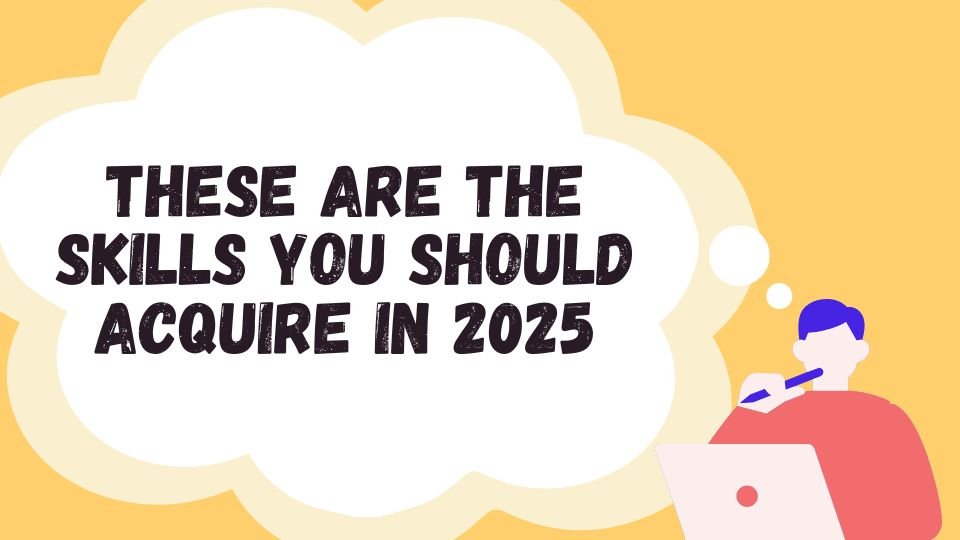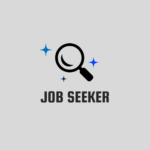The world is changing rapidly technological breakthroughs, societal change & global challenges such as climate change & geopolitical tensions require new ways of thinking—and, above all, new skills. Anyone who wants to be successful in 2025, whether in their career or in everyday life, must be willing to learn, adapt, and invest in certain key competencies. In this article, I will show you which skills will be particularly in demand in 2025 & why it’s worth developing them now.

1. Digital competence: More than just technical understanding
Digitalization is advancing inexorably. A basic understanding of digital tools is now required in almost every professional field and this requirement will increase significantly by 2025.
Why it is important:
According to a study by the World Economic Forum around 85 million jobs worldwide will disappear due to automation by 2025 while at the same time 97 million new ones will be created mainly in technology-related fields.
Which specific skills are included?
-
Data literacy : Basics in data analysis, statistics and data visualization with tools such as Excel, Tableau or Power BI.
-
Basics of programming : Languages such as Python, JavaScript or SQL are particularly in demand – also an advantage for non-technical people.
-
Cybersecurity awareness : Raising awareness of data protection, safe online behavior, and basic security practices.
Tip:
Platforms such as Coursera, Udemy or LinkedIn Learning offer certified courses that allow you to learn from the comfort of your own home.
2. Critical thinking & problem-solving skills
In a world with information overload, the ability to think critically and solve problems in a structured manner is a key skill for the future.
Why it is important:
Machines can process data – but human judgment, contextual understanding and ethical thinking remain irreplaceable.
How to develop this skill:
-
Learn to analyze and question arguments .
-
Practice systematic problem-solving: Recognize patterns, break problems down into sub-areas & develop creative solutions.
-
Use frameworks such as design thinking or six sigma to develop structured solution strategies.
3. Emotional intelligence and interpersonal communication
Even in the age of AI, one thing remains clear: people work with people, the ability to recognize, understand, & respond appropriately to emotions is increasingly becoming a decisive advantage.
What does it include.?
-
Empathy : The ability to empathize with other people – especially important for leaders.
-
Active listening : Not just listening, but understanding what the other person means.
-
Conflict resolution and teamwork: soft skills essential for collaborative work environments.
Fun Fact:
Studies show that emotionally intelligent employees are up to 58% more successful in their jobs than their colleagues with comparable professional qualifications.
4. Sustainability awareness and green skills
By 2025, sustainability will no longer be a “nice-to-have,” but a central component of business decisions and personal lifestyles.
Why it is relevant:
The EU is pursuing ambitious climate goals with the “Green Deal,” and more and more companies are integrating ESG (Environmental, Social, Governance) criteria into their strategies.
What skills you should acquire:
-
Fundamentals of environmental sciences and ecological relationships.
-
Knowledge of sustainable management , e.g. circular economy, CO₂ accounting.
-
Awareness of social justice and global supply chains.
5. Understanding artificial intelligence and automation
Artificial intelligence is becoming increasingly powerful and is already transforming workflows in numerous industries but you don’t have to be a developer to benefit.
Why it matters:
Those who understand what AI can (and cannot) do can work with it more effectively – or be relieved of monotonous tasks.
What you should learn:
-
Basics of AI and machine learning (e.g. through tools like ChatGPT, Google AutoML).
-
Application of AI tools in everyday life , e.g. for text, image processing or automation.
-
Understand and reflect on ethical issues in dealing with AI .
6. Adaptability and lifelong learning
Perhaps the most important skill of all: the willingness to continually evolve. change will not stop so we must learn to embrace it.
How to strengthen this competency:
-
Cultivate a growth mindset : See challenges as opportunities.
-
Establish learning routines such as daily reading, podcasts, online courses or peer groups.
-
Use digital learning methods: microlearning, learning apps or social learning communities.
7. Financial literacy in the digital age
In an increasingly complex global economy, it is essential to understand your own finances – and to actively manage them.
Important content:
-
Basics of investing , e.g. ETFs, diversification and compound interest.
-
Understanding digital payment methods and cryptocurrencies – even if you don’t want to invest.
-
Responsible financial planning : budgeting, debt management and retirement planning.
8. Intercultural competence and language skills
The world is more connected than ever. Anyone who wants to work or travel internationally successfully should respect cultural differences and be a confident communicator.
What skills will help you.?
-
Knowledge of foreign languages , especially English, Spanish or Mandarin.
-
Cultural sensitivity : Understand the values, norms, and etiquette of other cultures.
-
Mastering virtual teamwork across borders – a must in the remote age.
Conclusion: Invest in your future today
2025 is just around the corner and with it a new era of opportunities and challenges. The good news: You don’t have to be a tech guru or genius to keep up rather, it’s about staying curious, thinking openly, and investing purposefully in skills that will future-proof you.
Whether it’s digital tools, critical thinking, or sustainability awareness—each of these skills will help you act confidently in an increasingly complex world. So, don’t wait for the perfect moment. Start working on yourself today—for a strong tomorrow.





